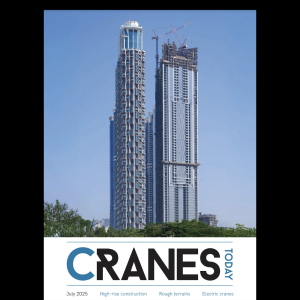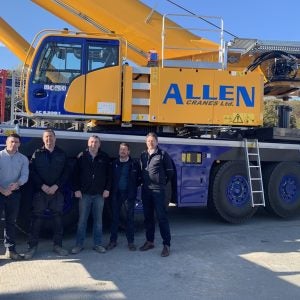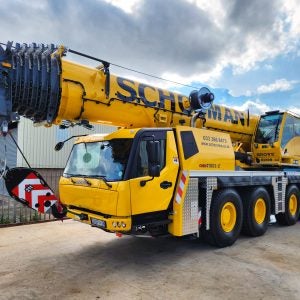This effectively would mean that crane drivers, who travel on the public highway in their cranes, would have to complete 35 hours training by September 2014, to qualify for the driver CPC.
The Construction Plant-hire Association (CPA), which works to create guidance for the industry, has over 1,500 members, 180 of which would be affected by ultimate decisions made between the bodies involved. The CPA called for a meeting with the DSA, which took place in Nottingham on July 13.
VOSA had previously indicated that crane drivers from the UK would not be required to adhere to the CPC, a view generally shared across the industry.
However, after an announcement from the DSA, the result is still unclear.
Colin Wood, chief executive of the CPA, said mobile cranes were not goods vehicles and were not allowed to carry goods for hire or reward. However, they were allowed to carry ancillary equipment to be used to complete the lifting operation.
On this basis, Wood said mobile crane drivers should be exempt from the regulations on the basis of the “incidental driver” exemption. “For example,” he said, “driving on the road was incidental to the main job of operating the crane on site.”
He also said that most mobile crane companies would probably wait for a test case to be heard to clarify the situation. However, the DSA said it hopes to avoid test cases as they may prove costly and time consuming and that the delays in waiting for clarification will directly affect drivers as it is unlikely that a case will be heard until after September 2014, at which point it will be too late for drivers who had not completed their training to legally drive professionally without a CPC.
The DSA suggested that the matter had not been closed and it would be seeking further advice from CIECA (the international commission for driver testing).






